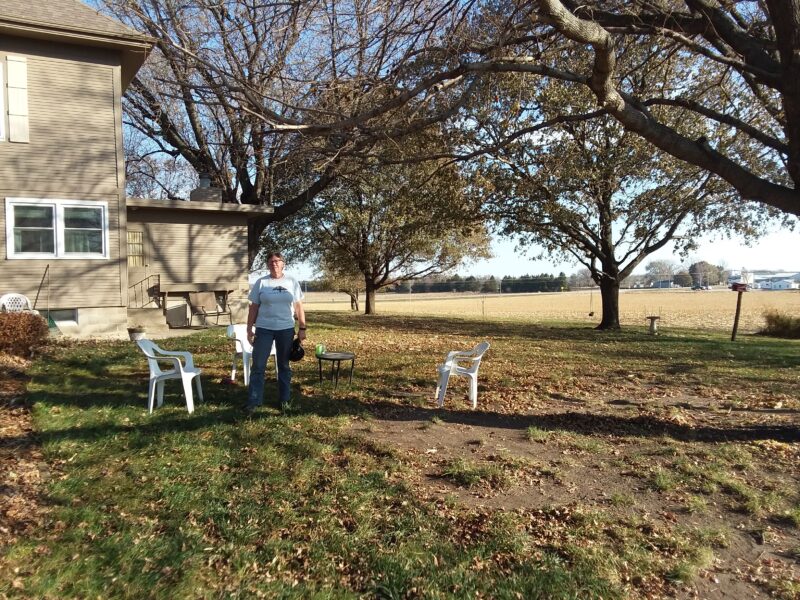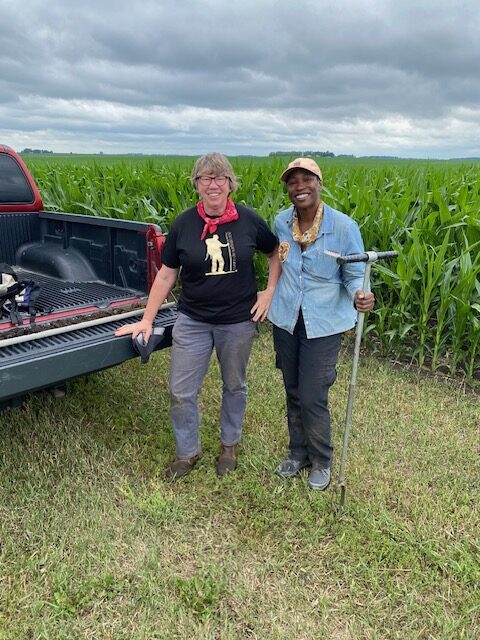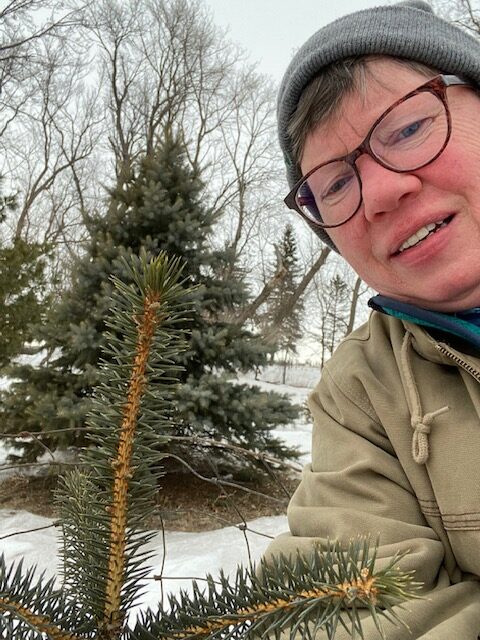Climate Land Leader Jane Shey of Algona, IA was profiled in Iowa Interfaith Power & Light’s “Faithful Farmer” series. Reprinted with permission.
What do you grow?
We rent our land primarily to farmers who produce corn and soybeans. We also have some hay ground and 400 acres in the Conservation Reserve and Wetland Reserve Program.

Tell us a little about the land you farm. What does the landscape look like? How did you end up there?
Farming at our homeplace started in 1895 with two bachelor brothers farming “prairie and slough” as described in the local paper. It has a mixture of soil types that is productive in part due to deposits from the glaciers and modern day tiling. It is relatively flat and productive farmland.
Share about a time when you felt blessed to be farming.
I loved growing up on the farm as a child. I had horses, was involved in 4-H, and we had several tree houses that we built. There were responsibilities around feeding club calves, baling hay, and walking beans, but there was also the freedom to explore and develop a certain level of independence. I feel very lucky to have grown up this way when I see the busy and structured lives of kids today.

How does your faith call you to farming? Where do you see a higher power in your work as a farmer?
I consider myself a steward or caretaker of the land. My parents taught us to take care of the land and leave it better than we found it. We have always planted and cared for trees on our farm, enrolled fragile land in conservation programs, and in general tried to be responsible stewards. Five years ago, I walked the path of St. Francis from Florence to Assisi in Italy. Spending 17 days walking and being surrounded by nature was one of the best experiences of my life. This pilgrimage also shaped my view of living with creation. St. Francis lived the philosophy of caring for and living in harmony with creation. The world around him was a gift from the Creator and I believe he took great joy in being in nature. Our challenge today is to co-exist and live with all of creation. We are merely stewards of our land and world for a time and then, we pass it on to someone else. Our job is not to dominate, but to live with respect and reverence. I feel fortunate to live on our farm and to be a caretaker before I pass the land on to someone else.

How does farming call you to climate action? What future would you like to see for Iowa and agriculture?
As farmers, we are heavily impacted by climate change. The temperature fluctuations, the way the wind blows frequently, intense rainfall and then a dry month. I visited Kenya recently for work and saw the northern region which is in its fourth year of drought. It is unbelievable to see the suffering and hunger of the people, no feed for the livestock, and the destruction of their way of life. In the U.S., we have more tools and resources to cope with the changing climate, but our day is coming when the challenges will only increase and we may also need to find a new way to farm to adapt to the changes. I wish more farmers had an interest in cover crops and soil health and I wish our state legislature would implement programs to improve our water quality and protect our soil. I do find hope in organizations like Iowa Interfaith Power & Light and in Climate Land Leaders, which is a regional organization that works with farmers like me to learn about and develop on-farm practices to mitigate and adapt to climate change. These individual organizations do great work, but the impact would be more far reaching if our state government in particular took some leadership. I always say, “Mother Earth bats last” and I just hope that humans can survive the catastrophic changes that will occur if we do nothing.
Anything else you would like to share?
To have access to land and to live this lifestyle is a privilege and I think that so often we get caught up in the busyness of life that we forget our many blessings.